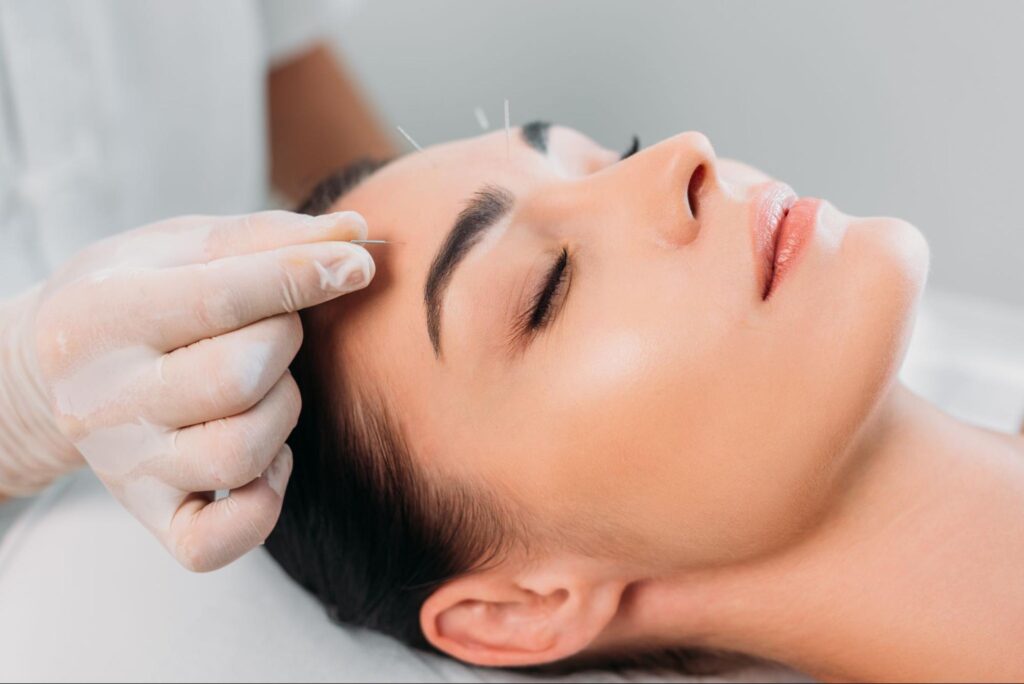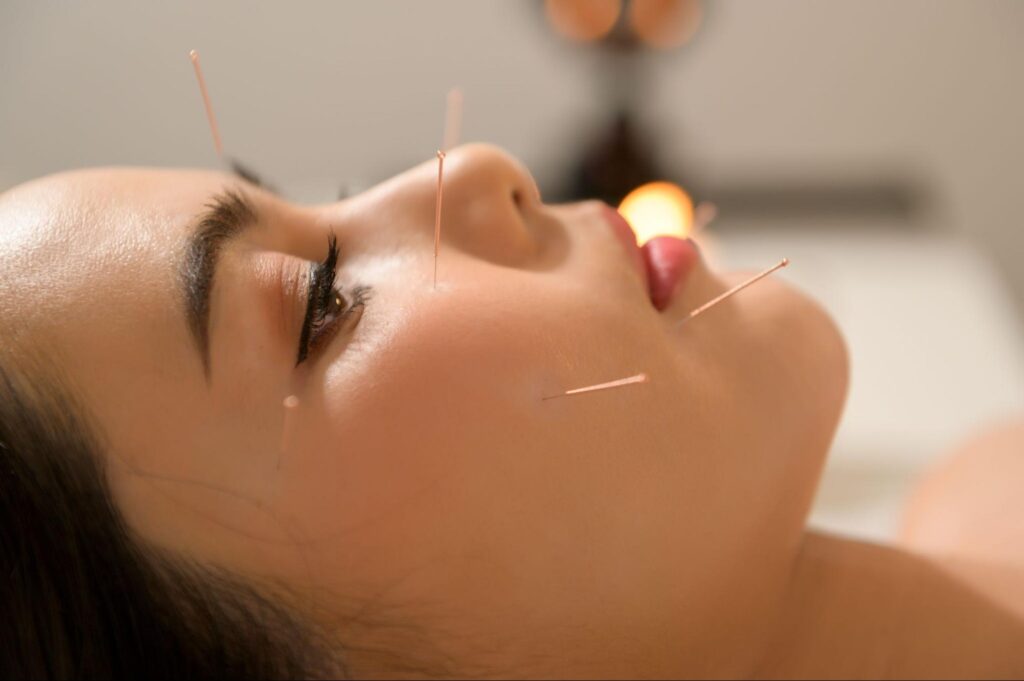
For thousands of years, acupuncture has been a cornerstone of Traditional Chinese Medicine (TCM), guiding people toward a balanced and healthier life. While its origins are deeply rooted in Chinese culture, this ancient practice has not only gained recognition and widespread acceptance in modern healthcare worldwide. Acupuncture, which works on the flow of energy, or Qi, that circulates through bodily pathways, has become a go-to solution for many individuals managing chronic pain, reducing stress, and improving overall wellness.
Understanding Acupuncture in Traditional Chinese Medicine
Acupuncture is a fundamental part of Traditional Chinese Medicine (TCM) that aims to restore balance within the body by regulating the flow of Qi, or vital energy. According to TCM, Qi moves through specific pathways called meridians, and any disruption in this flow can lead to illness or discomfort. By inserting needles into precise points along these meridians, acupuncture helps restore the flow of Qi, promoting the body’s natural ability to heal and maintain balance. This practice reflects TCM’s holistic approach, which views health as a harmonious balance of energy rather than the absence of disease.
In addition to balancing Qi, acupuncture aligns with TCM’s broader principles, such as the interplay of Yin and Yang and the Five Elements (Wood, Fire, Earth, Metal, and Water). These concepts represent different aspects of the body and mind, and acupuncture keeps them in harmony. Instead of treating just the symptoms, acupuncture in TCM supports overall wellness, helping prevent future illnesses by maintaining this delicate balance. Through this holistic method, acupuncture is a therapeutic and preventative practice, embodying TCM’s focus on whole-body health.
The Types of Acupuncture Used in Traditional Chinese Medicine
Acupuncture has developed various techniques, each suited to different health concerns. These methods are rooted in the same principles of energy flow but vary in application. Understanding these types allows individuals to choose the best approach for their unique needs:
Traditional Body Acupuncture
Traditional body acupuncture involves inserting fine needles into specific points along the body’s meridians, which correspond to different organs and systems within the body. By stimulating these points, the flow of Qi is restored, helping to relieve pain and improve overall health. This type of acupuncture is used for various conditions, including pain management, digestive issues, and emotional imbalances.
Auricular Acupuncture
Auricular acupuncture focuses on points within the ear representing different organs and bodily systems. This method is particularly effective for treating conditions such as addiction, anxiety, and pain. By stimulating the ear, practitioners can influence health across the entire body. Auricular acupuncture is often used as a complementary treatment or in conjunction with other forms of acupuncture.
Electroacupuncture
Electroacupuncture intensifies the effect by combining traditional needle insertion with electrical stimulation. Small electrical currents are passed through the needles, providing deeper stimulation to the acupuncture points. This technique is especially effective for chronic pain, inflammation, and muscle spasms. It is ideal for conditions that require more muscular stimulation than traditional acupuncture alone.
Acupressure
Acupressure uses manual pressure instead of needles to stimulate acupuncture points along the meridians. This technique is suitable for those who are uncomfortable with needles but still want the benefits of acupuncture. Acupressure is often used for tension headaches, muscle pain, and digestive discomfort. It is a gentler, non-invasive option for promoting balance and wellness.
The Benefits of Acupuncture in Traditional Chinese Medicine
Acupuncture offers numerous health benefits, addressing both physical and mental well-being. Its holistic approach makes it a versatile tool for promoting overall health. From pain relief to improved digestion, acupuncture supports the body in many ways.
Pain Relief
Acupuncture has been shown to effectively treat chronic conditions such as back pain, arthritis, and migraines. It works by stimulating the body’s natural painkillers, like endorphins, and reducing inflammation. Many patients prefer this natural approach over medication for long-term pain management.
Stress and Anxiety Management
Acupuncture is also highly effective for managing stress and anxiety. It helps calm the nervous system and reduce the physical symptoms of stress, such as muscle tension and headaches. Many patients report feeling more relaxed and balanced after acupuncture sessions. This natural method provides an alternative to pharmaceuticals for managing mental health issues.
Boosting Immune Function
Acupuncture can help strengthen the immune system by enhancing the body’s natural defenses. By stimulating specific points, acupuncture improves immune response and reduces the likelihood of illness. Regular treatments can help prevent common ailments like colds and flu. It’s a natural way to maintain overall health and resilience.
Improved Digestion
Acupuncture is known to support digestive health by regulating the function of the digestive system. It helps alleviate bloating, indigestion, and irritable bowel syndrome (IBS). Acupuncture enhances energy flow to the digestive organs, promoting more efficient functioning. This results in better digestion and overall gut health.
How Acupuncture Works
Acupuncture’s effectiveness stems from both ancient wisdom and modern scientific principles. While Traditional Chinese Medicine focuses on balancing Qi, modern research has uncovered physiological mechanisms behind acupuncture’s healing. Understanding how acupuncture works provides insight into why it remains a trusted treatment for various health conditions.
Regulating Qi
In Traditional Chinese Medicine, Qi is the body’s vital energy that must flow freely for optimal health. Acupuncture stimulates specific points along the meridians to restore the smooth flow of Qi. Blockages in these pathways can cause illness, pain, or emotional distress. Acupuncture helps clear these blockages, allowing the body to heal naturally.
Nervous System Response
Acupuncture stimulates the nervous system, triggering the release of neurotransmitters and hormones like endorphins. These chemicals help reduce pain, promote relaxation, and regulate mood. That explains why acupuncture is effective in treating chronic pain and stress-related conditions. It activates the body’s natural healing, improving health outcomes.
Blood Flow Enhancement
Acupuncture has been shown to improve circulation by increasing blood flow to targeted areas. This enhanced circulation brings oxygen and nutrients to tissues while removing waste products. Improved blood flow helps reduce inflammation, speeds healing, and alleviates pain. This mechanism is handy for treating musculoskeletal issues and injuries.
Hormonal Balance
Acupuncture influences the endocrine system, which regulates the body’s hormones. It balances hormones related to mood, reproduction, and metabolism, making acupuncture an effective treatment for conditions like PMS, menopause, and fertility issues. By promoting hormonal balance, acupuncture supports both physical and emotional well-being.
Safety and Side Effects of Acupuncture
Acupuncture is considered a safe treatment with minimal risks when performed by a qualified practitioner. However, being aware of potential side effects and conditions requiring caution is essential. Knowing how to ensure safety enhances the overall effectiveness of acupuncture.
Minimal Side Effects
Acupuncture is generally safe, with minimal side effects. The most common effects include slight bruising or soreness at the needle site. These are temporary and usually resolve within a day or two. When performed by a licensed practitioner, acupuncture carries low risk, making it a reliable treatment option.
Pre-Existing Conditions
Individuals with certain medical conditions should exercise caution with acupuncture. For example, people with bleeding disorders or those taking blood thinners should consult their healthcare provider before undergoing acupuncture. Similarly, electroacupuncture is not recommended for individuals with pacemakers due to the electrical stimulation. It would help if you discussed any health concerns with your doctor and acupuncturist before beginning treatment.
Choosing a Practitioner
Choosing a licensed and experienced practitioner is essential to ensuring a safe acupuncture experience. Proper training ensures the practitioner knows how to avoid complications, such as infection or improper needle placement. Always verify that the acupuncturist uses sterile, single-use needles to prevent infection. A well-trained professional can provide effective and safe treatment tailored to individual needs.
Acupuncture in Modern Healthcare
Acupuncture has found a significant role in modern healthcare, especially as a complementary therapy. Its integration into hospitals and clinics reflects its growing acceptance as part of holistic medical care. This combination of traditional and modern medicine enhances patient outcomes and broadens treatment options.
Integrative Medicine
Many modern healthcare systems now incorporate acupuncture as part of integrative medicine. Hospitals and clinics offer acupuncture to complement conventional treatments, especially for pain management and recovery after surgery. This combination of traditional and modern practices helps improve patient outcomes and reduce the reliance on medication. Acupuncture’s ability to promote healing is valuable to modern medical care.
Complementary Therapy
Acupuncture is often used as a complementary therapy alongside other medical treatments. It enhances the effectiveness of physical therapy, chiropractic care, and medication. Acupuncture can reduce pain, speed recovery, and lower the need for pharmaceutical interventions. This complementary approach addresses both the physical and emotional aspects of healing.
Global Recognition
Acupuncture’s effectiveness is recognized globally, leading to its endorsement by various health organizations. The World Health Organization (WHO) supports acupuncture for treating a variety of conditions, including chronic pain, headaches, and nausea. This recognition has helped acupuncture gain broader acceptance in modern healthcare systems. As a result, more practitioners and clinics are incorporating acupuncture into their treatment offerings.
The Future of Acupuncture in Traditional Chinese Medicine
New advancements in acupuncture techniques are making treatments more accessible. Methods like laser acupuncture and needle-free acupuncture are being developed for patients who are uncomfortable with traditional needles. These innovations maintain the benefits of acupuncture while offering more options for diverse patient needs. As technology evolves, acupuncture will continue to grow in accessibility and effectiveness.
Further Scientific Validation
Ongoing research into acupuncture’s mechanisms and benefits will likely expand its role in modern medicine. As scientific studies confirm its effectiveness, acupuncture will gain even greater credibility in the medical community. This growing body of evidence will help acupuncture integrate into mainstream healthcare practices. More validation will lead to broader acceptance and application in treating various health conditions.
Cultural Influence
Acupuncture’s influence extends beyond China and is becoming part of global healthcare systems. As it spreads worldwide, more people become familiar with its principles and benefits. This cross-cultural adoption blends traditional Chinese practices with modern medical approaches, creating a more holistic view of health. Acupuncture’s role in the future of medicine is secure, as it continues to influence healthcare practices worldwide.
Acupuncture’s Lasting Impact on Health and Wellness
Acupuncture represents a fascinating blend of ancient healing traditions and modern medical practice. It has been a vital part of Traditional Chinese Medicine for centuries, promoting balance and wellness by regulating Qi. Today, its continued relevance is a testament to its effectiveness, with countless individuals benefiting from its holistic approach to health. Acupuncture’s future is one of growth and evolution, with new techniques and scientific validation paving the way for even broader applications. As people seek more natural ways to care for their bodies and minds, acupuncture offers a time-honored method that remains as powerful today as it was thousands of years ago.
Visit our 간송한의원123 Acupuncture & Herbs blog to explore more about holistic wellness and acupuncture benefits.




